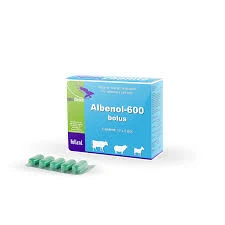- Afrikaans
- Albanian
- Amharic
- Arabic
- Armenian
- Azerbaijani
- Basque
- Belarusian
- Bengali
- Bosnian
- Bulgarian
- Catalan
- Cebuano
- Corsican
- Croatian
- Czech
- Danish
- Dutch
- English
- Esperanto
- Estonian
- Finnish
- French
- Frisian
- Galician
- Georgian
- German
- Greek
- Gujarati
- Haitian Creole
- hausa
- hawaiian
- Hebrew
- Hindi
- Miao
- Hungarian
- Icelandic
- igbo
- Indonesian
- irish
- Italian
- Japanese
- Javanese
- Kannada
- kazakh
- Khmer
- Rwandese
- Korean
- Kurdish
- Kyrgyz
- Lao
- Latin
- Latvian
- Lithuanian
- Luxembourgish
- Macedonian
- Malgashi
- Malay
- Malayalam
- Maltese
- Maori
- Marathi
- Mongolian
- Myanmar
- Nepali
- Norwegian
- Norwegian
- Occitan
- Pashto
- Persian
- Polish
- Portuguese
- Punjabi
- Romanian
- Russian
- Samoan
- Scottish Gaelic
- Serbian
- Sesotho
- Shona
- Sindhi
- Sinhala
- Slovak
- Slovenian
- Somali
- Spanish
- Sundanese
- Swahili
- Swedish
- Tagalog
- Tajik
- Tamil
- Tatar
- Telugu
- Thai
- Turkish
- Turkmen
- Ukrainian
- Urdu
- Uighur
- Uzbek
- Vietnamese
- Welsh
- Bantu
- Yiddish
- Yoruba
- Zulu
Nov . 08, 2024 07:47 Back to list
Exploring the Effects and Mechanisms of Enro Injection in Clinical Applications
Understanding ENRO Injection A Comprehensive Overview
Enrofloxacin, commonly referred to as ENRO, is an antibiotic belonging to the fluoroquinolone class. It is widely utilized in veterinary medicine, particularly for treating a variety of bacterial infections in animals. This article provides an in-depth look into ENRO injection, its mechanisms, applications, benefits, and considerations for its use.
Mechanism of Action
ENRO works by inhibiting bacterial DNA gyrase and topoisomerase IV, essential enzymes for bacterial DNA replication, transcription, and repair. This disruption leads to the prevention of bacterial cell division and ultimately results in cell death. Its broad-spectrum activity makes ENRO effective against both Gram-positive and Gram-negative bacteria, which is crucial for treating infections that may be caused by various pathogens.
Applications in Veterinary Medicine
ENRO injection is predominantly used in veterinary practices for treating systemic infections in companion animals and livestock. Common indications include respiratory infections, urinary tract infections, gastrointestinal infections, and skin infections. It is particularly useful in cases where other antibiotics may have failed due to bacterial resistance. Additionally, ENRO is often employed in poultry to prevent and control respiratory diseases, ensuring the health of flocks and minimizing economic loss for farmers.
Pharmacokinetics and Dosage
When administered via injection, ENRO is rapidly absorbed, reaching peak plasma concentrations within a few hours. Its bioavailability allows for effective tissue penetration, making it ideal for treating infections in various body systems. The dosage of ENRO varies based on the species, the severity of the infection, and the method of administration. Veterinarians typically adjust dosages to account for the specific clinical situation and the patient’s response to therapy.
enro injection

Advantages of ENRO Injection
One of the primary benefits of ENRO injections is their effectiveness in treating severe bacterial infections when oral administration is not feasible. For instance, in cases where animals are vomiting or unable to take oral medications, injections provide a reliable alternative. The rapid onset of action associated with parenteral administration ensures that animals start to recover quickly, which is paramount in managing acute infections.
Moreover, ENRO has a relatively low toxicity profile, making it safe for several animal species when used correctly. Its efficacy against a wide range of pathogens contributes to its popularity among veterinarians.
Considerations and Side Effects
While ENRO is generally safe, it is essential for veterinarians to be aware of its potential side effects. Some animals may experience gastrointestinal upset, lethargy, or allergic reactions following administration. Additionally, like other fluoroquinolones, ENRO can lead to cartilage damage in young animals, so its use is typically cautioned or restricted in such cases.
Furthermore, the misuse or overuse of ENRO and other antibiotics can contribute to the growing issue of antibiotic resistance. Therefore, it is vital for veterinarians to follow guidelines for antibiotic stewardship, using ENRO judiciously and only when necessary.
Conclusion
ENRO injection serves as a critical tool in veterinary medicine for managing a range of bacterial infections. Its effective mechanism of action, broad-spectrum efficacy, and rapid absorption make it an invaluable resource for veterinarians. However, responsible use is paramount to minimize the risks of resistance and side effects. As an essential antibiotic in the veterinary arsenal, ENRO continues to play a vital role in ensuring the health and well-being of pets and livestock alike. As we advance in veterinary practices, ongoing research into antibiotic use, including alternatives and resistance management strategies, remains crucial for maintaining animal health and public safety.
-
Guide to Oxytetracycline Injection
NewsMar.27,2025
-
Guide to Colistin Sulphate
NewsMar.27,2025
-
Gentamicin Sulfate: Uses, Price, And Key Information
NewsMar.27,2025
-
Enrofloxacin Injection: Uses, Price, And Supplier Information
NewsMar.27,2025
-
Dexamethasone Sodium Phosphate Injection: Uses, Price, And Key Information
NewsMar.27,2025
-
Albendazole Tablet: Uses, Dosage, Cost, And Key Information
NewsMar.27,2025













